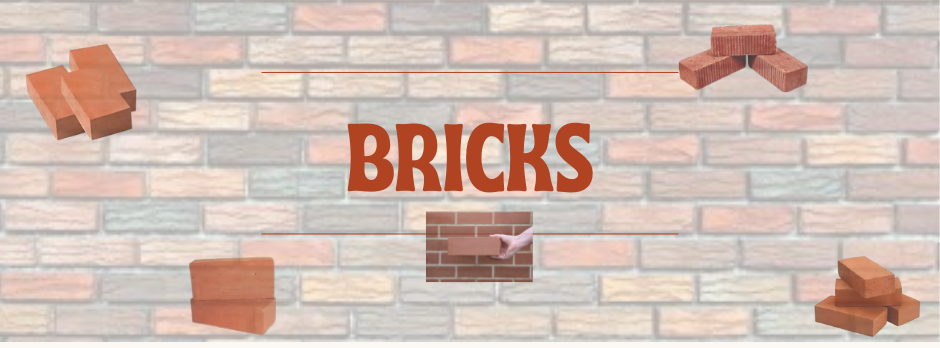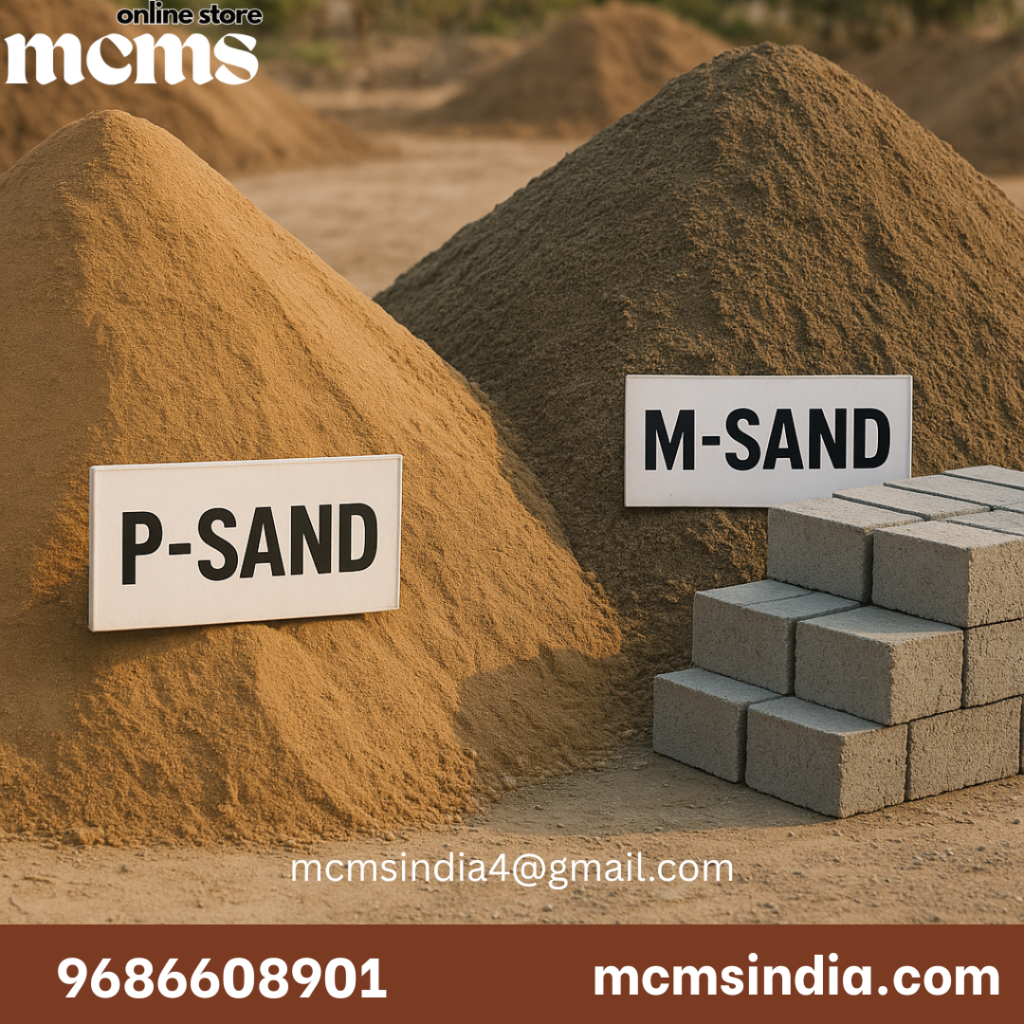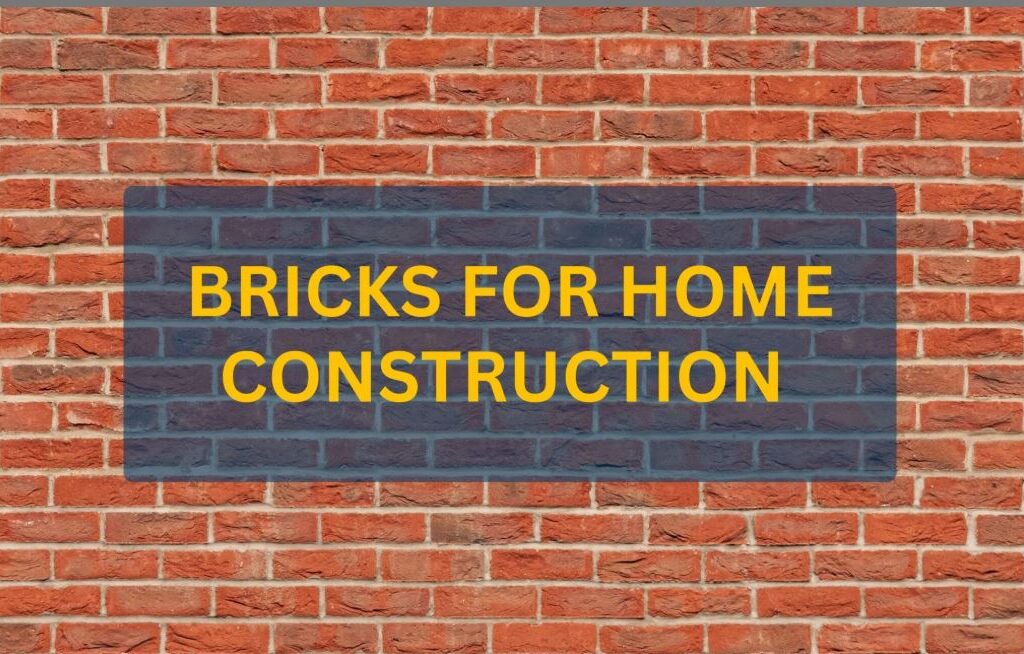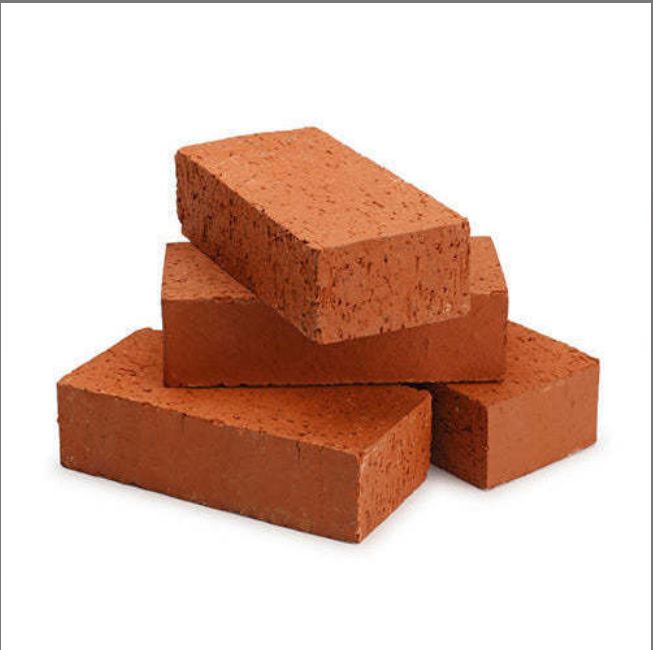sand and bricks suppliers near me
Sand and Bricks Suppliers Near Me – Mysore’s Trusted Construction Material Supplier
Table of Contents
- Introduction: Why Choose Us as sand and bricks suppliers near me
- Types of Sand We Supply
- River Sand
- Pit Sand (Coarse Sand)
- M‑Sand (Manufactured Sand)
- Crushed Stone Sand / Bank Sand
- Utility / Fill Sand
- Specialty Sand (Plaster Sand, Masonry Sand)
- Types of Bricks We Supply
- Burnt Clay Bricks
- Fly Ash Bricks
- Concrete Bricks / Solid Concrete Blocks
- Engineering Bricks
- Sand Lime Bricks (Calcium Silicate Bricks)
- Fire Bricks / Refractory Bricks
- Interlocking / AAC / Hollow Bricks
- How to Choose the Right Sand & Brick for Your Project
- Based on Structural Needs
- Based on Finish / Plastering
- Based on Load / Durability / Climate
- Our Supply & Delivery System in Mysore
- Coverage Area
- Logistics, Trucks, Timely Delivery
- Quality Checks & Testing
- Frequently Asked Questions (FAQ)
- External Resources & References
- Conclusion & Call to Action
1. Introduction: Why Choose Us as sand and bricks suppliers near me
As a full‑scale construction materials supplier based in Mysore, we are proud to be among the leading sand and bricks suppliers near me you can rely on. From foundation to finish, we stock and deliver every kind of sand, brick, and masonry product you need—for residential, commercial, and industrial projects alike.
Searching for “sand and bricks suppliers near me”? Your search ends here. Whether you need high-quality sand for concrete or premium bricks for the walls, we’ve got you covered—locally, reliably, and transparently.
In this post, we explain in detail the types of sand and bricks we supply, guide you on how to choose the right materials, and show you how we operate across Mysore. Let’s dive in.


2. Types of Sand We Supply
We supply all common and specialized sand varieties used in construction. Below is a breakdown:
2.1 River Sand
- Description: Naturally occurring sand from riverbeds. It generally has rounded, smooth grains and is relatively fine.
- Uses: Commonly used in plastering, masonry work, and sometimes in concrete mixes when of sufficient quality.
- Pros & Cons: Because grains are smoother, water demand is less; but uncontrolled extraction and seasonal restrictions may limit availability.
- Note: You must ensure river sand is washed and free of silt/clay.

2.2 Pit Sand (Coarse Sand)
- Description: Excavated from pits (a few meters deep), coarse, angular, sharp grains.
- Uses: Particularly good for concrete (RCC), foundations, structural work where bonding and strength are key.
- Source Issues: May contain impurities like clay or organic matter; must be cleaned.
- This is often called “coarse sand” in local usage.
2.3 M‑Sand (Manufactured Sand)
- Description: Artificially produced by crushing hard rock (like granite) to sand-sized particles. It is an engineered substitute for natural sand.
- Uses: Widely accepted for both concrete and masonry work.
- Advantages: More consistent quality, size control, less reliance on natural sources.
- Standards: Should comply with IS 383 or equivalent local quality norms.
- Trend: As natural sand sources deplete or face regulation, M‑Sand is becoming more prevalent.


2.4 Crushed Stone Sand / Bank Sand
- Description: Made by crushing stone or rock and then sieving to sand size.
- Uses: In structural concrete mixes, road work, etc.
- Characteristics: Angular grains, good interlock, but may require more water or careful grading.
2.5 Utility / Fill Sand
- Description: Coarser fill material, often used for backfilling voids, leveling, or general fill where structural integrity is less critical.
- Uses: For filling trenches, base layers under slabs, landscape leveling.
- Note: Not recommended for visible finishes or load-bearing zones.
2.6 Specialty Sand (Plaster Sand, Masonry Sand)
- Description: Fine, clean sand with minimal impurities, used specifically for plastering or masonry mortar.
- Uses: Final plaster coats, mortar mix for bricks, tiling bedding.
- Characteristics: Fine texture, uniform grains, minimal coarse particles.
Summary Table – Sand Types & Applications
| Sand Type | Grain Type / Texture | Best Use(s) | Key Considerations |
|---|---|---|---|
| River Sand | Rounded, fine to medium | Plastering, masonry, light concrete | Must be clean, free of silt/clay |
| Pit / Coarse Sand | Sharp, angular | Structural concrete, foundations | Clean and graded |
| M‑Sand | Engineered, graded | Concrete, masonry | Quality control important |
| Crushed Stone Sand | Angular | Heavy concrete, roads | Water demand & grading |
| Utility / Fill Sand | Coarse, mixed | Backfill, leveling | Not for finish layers |
| Plaster / Masonry Sand | Fine, consistent | Mortar, finishes | Minimal coarse content |
(Sources: various construction sand guides)
3. Types of Bricks We Supply
As one of the reliable sand and bricks suppliers near me, we stock all major brick types needed in modern construction:
3.1 Burnt Clay Bricks (Traditional Red Bricks)
- Description: Made from clay and fired in a kiln.
- Uses: Standard walls, partitions, non-critical structural elements.
- Advantages: Time-tested, uniform size, good bonding with mortar.
- Limitations: Heavier, may have variable absorption.


3.2 Fly Ash Bricks
- Description: Manufactured using fly ash (a byproduct from thermal plants), cement, and sand.
- Uses: Walls, partitions, non-load-bearing as well as load-bearing in many cases.
- Advantages: Lightweight, eco-friendly, better insulation, consistent dimensions.
- Standards: IS 3812 (in India) defines quality norms. Wikipedia
3.3 Concrete Bricks / Solid Concrete Blocks
- Description: Made from cement, sand, aggregates molded into brick shapes.
- Uses: Structural walls, facades, load-bearing walls.
- Advantages: Strong, uniform, can be reinforced.
- Limitations: Higher density, may need more precise curing.
3.4 Engineering Bricks
- Description: High-density bricks with very low water absorption, high strength.
- Uses: Basements, retaining walls, damp-prone structures, load-bearing under high stress.
- Advantages: Excellent durability, resistance to weathering and chemicals.
- Limitation: More expensive.
3.5 Sand Lime Bricks (Calcium Silicate Bricks)
- Description: Made by mixing sand and lime (silica + calcium), then pressing and autoclaving.
- Uses: Partition walls, facades, acoustic walls.
- Advantages: Good acoustic insulation, smooth finish, uniform shape.
- Limitations: Less strength versus engineering bricks in heavy load applications.
3.6 Fire Bricks / Refractory Bricks
- Description: Bricks designed to withstand high temperatures and thermal cycling.
- Uses: Kilns, fireplaces, chimneys, furnace lining.
- Advantages: High heat resistance, stability at elevated temperature.
- Limitation: Not used for general walls; specialized use.
3.7 Interlocking / AAC / Hollow Bricks
- Interlocking Bricks: Bricks designed to lock together without mortar or minimal mortar—saves labor.
- AAC (Autoclaved Aerated Concrete): Lightweight blocks with good insulation, easy cutting.
- Hollow / Cellular Bricks: Bricks with holes or voids to reduce weight and improve insulation.
Summary Table – Brick Types & Applications
| Brick Type | Key Features | Ideal Uses | Notes / Pros & Cons |
|---|---|---|---|
| Burnt Clay Bricks | Traditional, red, fired clay | Walls, partitions | Proven, local acceptance |
| Fly Ash Bricks | Lightweight, consistent | Walls, partitions | Eco-friendly |
| Concrete Bricks | Strong, uniform | Structural walls | Strong but heavy |
| Engineering Bricks | High strength, low absorption | Foundations, damp zones | High cost but reliable |
| Sand Lime Bricks | Smooth finish, insulation | Internal walls, facades | Moderate strength |
| Fire Bricks | Heat resistant | Kilns, chimneys | Specialized use only |
| Interlocking / AAC | Lightweight, easy install | Speedy construction, insulation | May need special handling |
(Sources: general brick guides) Dial4Trade+1
4. How to Choose the Right Sand & Brick for Your Project
Choosing the correct sand and brick can make or break your project’s durability, cost-efficiency, and finish. Here’s how to approach it:
4.1 Based on Structural Needs
- For foundations, columns, beams, load-bearing walls, choose strong materials: coarse sand, M‑Sand / crushed stone sand + burnt clay / engineering bricks / concrete bricks.
- For non-load-bearing partitions, lighter options (fly ash, AAC, hollow bricks) may suffice.
4.2 Based on Finish / Plastering
- For plaster and fine finishes, use fine, clean sand (plaster sand) + uniform bricks with good surface quality.
- Avoid coarse or dirty sand in finishing layers because it can cause rough surfaces or plaster failure.
4.3 Based on Durability / Environment / Climate
- In humid or damp zones, use engineering bricks or concrete bricks with low absorption.
- In areas with temperature variation, ensure bricks have good thermal stability (e.g. fly ash, concrete bricks).
- For fireplaces or stoves, use fire bricks.
4.4 Cost / Availability / Local Regulations
- Choose materials that are locally available to reduce transport cost.
- Check for compliance with local building codes or standards.
- Consider sustainable options (like M‑Sand, fly ash bricks) where possible.
5. Our Supply & Delivery System in Mysore
Here’s how we operate as your trusted sand and bricks suppliers near me in Mysore:
5.1 Coverage Area
We serve all major zones of Mysore (city, suburbs, outskirts) and adjacent areas. Whether your site is in A Block, Hebbal, Chamaraja, or outskirts like Hootagalli or Periyapatna, we deliver.
5.2 Logistics & Timely Delivery
- We own and manage a fleet of trucks, tippers, dumpers suited for sand and bricks transport.
- Delivery scheduling is tight; we maintain buffer stock to fulfill urgent orders.
- Site-to-site delivery ensures minimal handling, reducing damage and time.
5.3 Quality Checks & Testing
- Each batch of sand is sieved, washed, and tested for silt/impurity percentage.
- Bricks are tested for compressive strength, absorption, and dimensional accuracy.
- We provide material test certificates on request.
- Our warehouse ensures proper stacking and protection, reducing breakage.
5.4 Pricing & Transparency
- We maintain transparent pricing per cubic foot / per brick.
- No hidden transport surcharges for most Mysore city deliveries.
- Bulk order discounts available for large projects.
5.5 Why We Are Your Best Local Option
- Proximity means faster delivery, lower transport costs.
- Local reputation, references from past builders in Mysore.
- Ability to respond to site changes quickly (extra sand, bricks, etc.).
- One-stop supplier: beyond sand & bricks, we also supply steel, cement, tiles, plumbing, etc. (you can link to your internal pages for these) — internal link example: our full material catalog
6. Frequently Asked Questions (FAQ)
Q1: What is the ideal mix for brick mortar?
A: Typically 1 part cement : 4–6 parts fine sand (plaster/masonry sand). The sand must be clean and graded.
Q2: How much sand is needed per 1,000 bricks?
A: Roughly around 2.5–3.5 cubic feet of mortar sand is consumed (varies with brick size, thickness of joints).
Q3: Can I substitute river sand with M‑Sand?
A: Yes, M‑Sand is widely accepted. Ensure it meets local standards and adjust water content during mixing.
Q4: Do you supply large orders for apartments / commercial buildings?
A: Absolutely. We handle bulk orders and have experience with multi-storey projects.
Q5: What is the delivery time for Mysore city?
A: Usually 1–2 days after order confirmation, depending on quantity and site location.
Q6: Are your bricks kiln-fired or pressed?
A: We supply both kiln-fired (burnt clay) and pressed bricks (fly ash, concrete), depending on project requirements.
7. External Resources & References
- For detailed types of sand and uses: Types of Sand Used in Construction Ghareka+2srmprcements.com+2
- For brick types and their uses: Brick Types in India 2025 Dial4Trade
- For fly ash bricks standards: Fly Ash Brick (IS 3812) Wikipedia
(These are do-follow external references.)
8. Conclusion & Call to Action
If you’re searching for sand and bricks suppliers near me in Mysore, your search stops here. We offer:
- A full range of sand types (river sand, pit sand, M‑Sand, crushed sand, specialty sand)
- All major brick types (burnt clay, fly ash, concrete, engineering, hollow, fire bricks)
- Reliable local delivery, quality control, transparent pricing
- One-stop for all construction needs from foundation to finish
Get your quote today! Contact us at [your phone / WhatsApp / email] or fill out our request form at [link to contact page]. Let us deliver your construction materials exactly when and where you need them—with the quality you expect.
We will never break your trust like others do


